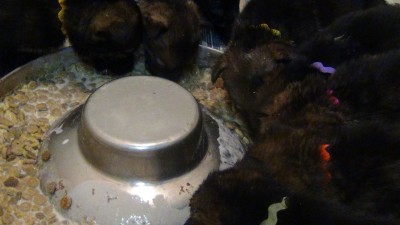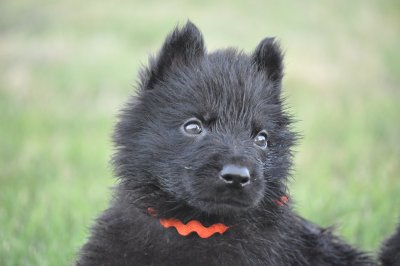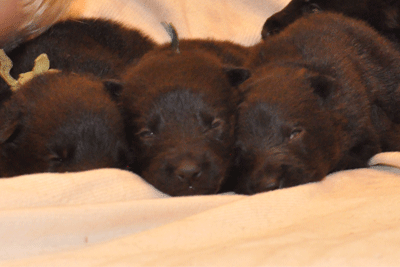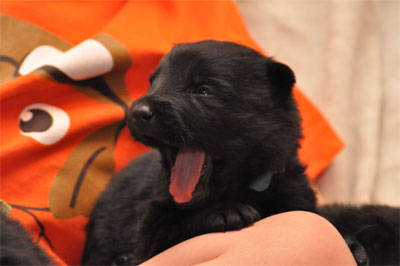
Sign up now to receive
notification of new litters,
new imports available, etc!
Visit our Facebook Page

New Videos
Bronka
/ Fox
Litter Z - Week 4

Cena
/ Fox
Litter Y - Week 6

Maxi
/ Fox
Litter X - Week 8

Maxi / Fox
Litter X - Week 5

Maxi
/ Fox
Litter X - Week 3

Maxi / Fox
Litter X - Week 2




|
The Genetics of German Shepherd Coat Colors
Ask just about anybody to describe a German Shepherd Dog and they will almost always
mention the classic
"saddle back"
markings. It is also just as possible for the GSD to be one solid color such as
black
(solid white is considered a conformation disqualification for showing by the AKC)
or
sable.
Sable German Shepherd coat colors are easily identified by multi-colored individual
hairs all over the body. Each individual hair is two colors with the tip usually
being black (called Guard Hairs).
German Shepherd coat colors and patterns may include any of the following:
sable
(also called
agouti
or wolf gray, in various colorations),
bi-color,
black & tan,
black & red,
black & cream,
solid black,
solid white, (considered a conformation
disqualification),
black & silver,
liver
(rare - conformation fault) and
blue
(rare - considered a conformation fault).
"No good dog is a bad color" -- Max von Stephanitz (breed founder of the German Shepherd
Dog) concerning German Shepherd coat colors
Concerning German Shepherd coat colors and various coat patterns the breed standard
from the
SV specifically states that:
"The color of the GSD is in itself not important and has no effect on the character
of the dog or on its fitness for work and should be a secondary consideration for
that reason. The final color of a young dog can only be ascertained when the outer
coat has developed. The normal (stock) coated GSD should carry a thick undercoat
and the outer coat should be as dense as possible, made up of straight hard close
lying hairs.
The hair on the head and ears, front of the legs, paws and toes is short. On the
neck it is longer and thicker, on some males forming a slight ruff. The hair grows
longer on the back of the legs as far down as the pastern and the stifle, and forms
fairly thick trousers on the hindquarters. There is no hard or fast rule for the
length of the hair, but short mole-type coats are faulty."
|